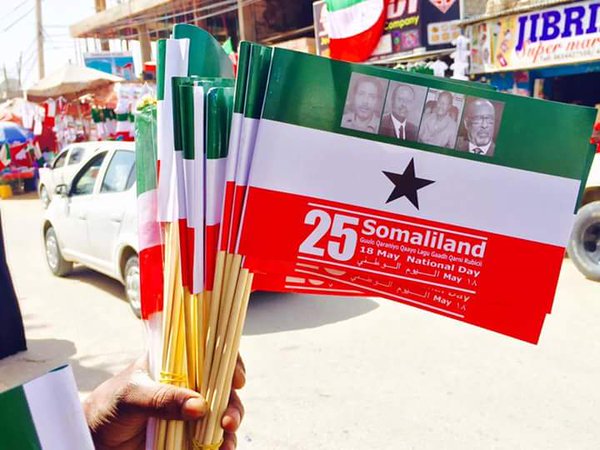The Somaliland question and why it has not materialised

By Abdi Aziz Gurbiye
The breakaway northern state of Somaliland today marks 25 years of a protracted quest for self determination in celebrations observed by Somalilanders in various capitals of the world.
Despite the quarter century struggle, Somaliland which was a former British colony before joining together with Italian Somaliland under the 1960 Act of the Union to form Somalia is yet to get any international recognition.
Eritrea gained its independence from Ethiopia in 1993 following a plebiscite. The road to independence had been marked by bitter wars which claimed thousands of lives.
South Sudan too charted its own course from Sudan in 2011 after a referendum. The relationship between the north and Southern Sudan had also been punctuated by deadly wars culminating in a divorce.
Unilateral actions
But why has it taken Somaliland 25 years and seemingly some more years ahead to be recognized among community of nations?
Abdullahi Osman Geljir, a former minister in Somaliland and now part of the Somalia-Somaliland negotiation team believes a unilateral action by Somaliland to pursue its own course could be its own greatest undoing.
“Unilateral action won’t take Somaliland to recognition. South and north must negotiate and decide whether Somaliland remains part of Somali or breaks away,” says Geljir.
He adds Somaliland can only gain international recognition if it negotiates with the larger Somalia to agree on such parameters as a referendum.
“The world is waiting for Somaliland and the larger Somalia to negotiate over the matter and come up with a decision on whether to secede or not just like Eritrea finally did with Ethiopia and South Sudan with Sudan,”said Geljir.
He also contends the unipolar state of the world has made things the more difficult for Somaliland. “When we had a bipolar system during the cold war period it was easy to get international support by switching sides but with a unipolar system there are no options to work with,” observes Abdullahi.
Plebiscite
Abdikarim Ahmed, a senior politician in Somaliland shares a similar view noting Somaliland can only get international nod if the decision to secede is not seen to be influenced by vested political interests.
It should be seen to come from the people and the best way to tell this is through a popular vote, Ahmed says.
“The world needs to see the Somaliland question disposed of on the table and not through unilateral decisions. That is how South Sudan and Eritrea managed to secure international support in their endevour for independence, Ahmed contends.
But Mohammad Farah, a biographer of Somaliland president Ahmed Silanyo rubbishes claims Somaliland must get international recognition to function. His argument is that Somaliland was once a separate state but acceded to the Act of the Union pact to form Somalia giving it an inherent right to chose to go on its own way if it wasn’t contended.
“We have the right to go our way since the agreement with the south did not hold,” says Farah. But he still courts the view of negotiation adding the world awaits the outcome of talks between Somaliland the Mogadishu administration.
Talks between the two sides will resume in Turkey later this months following several failed attempts on the self determination question.